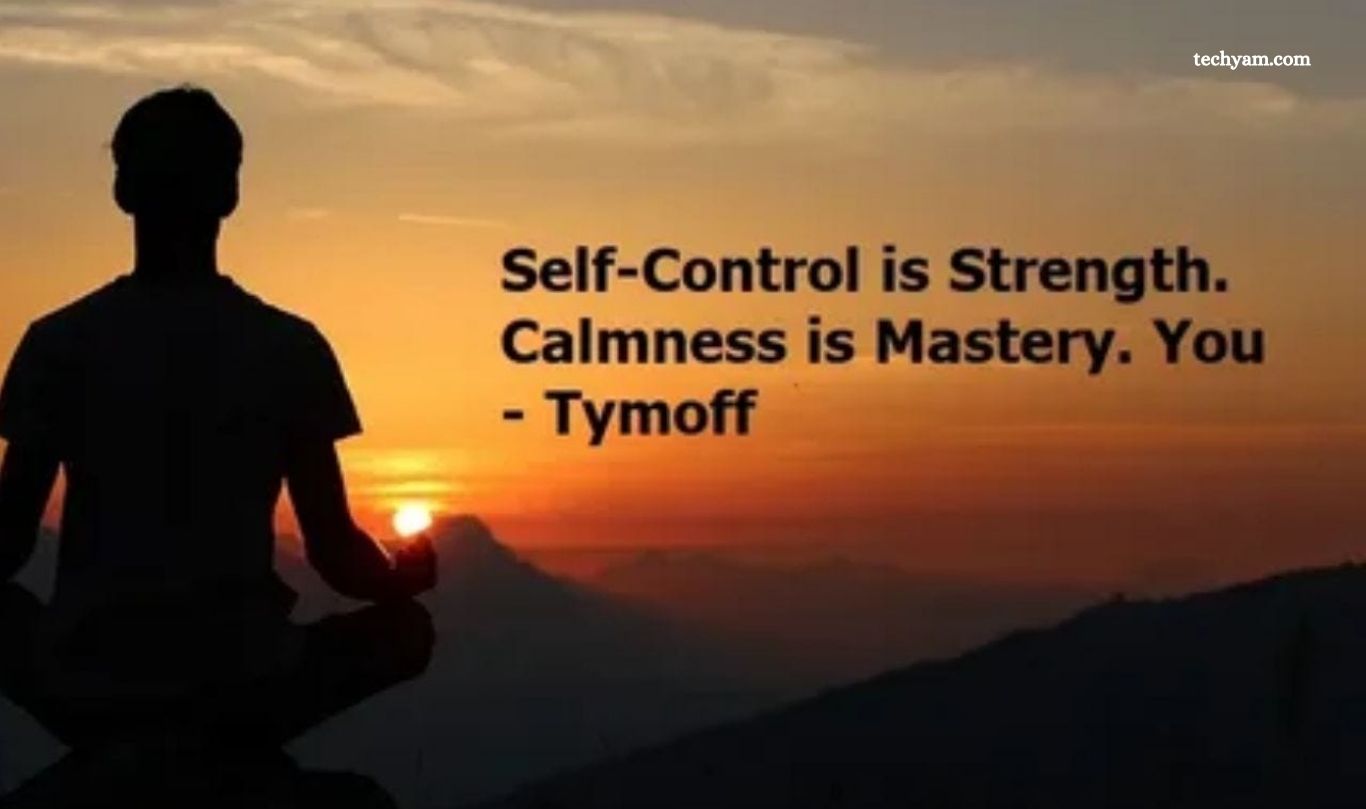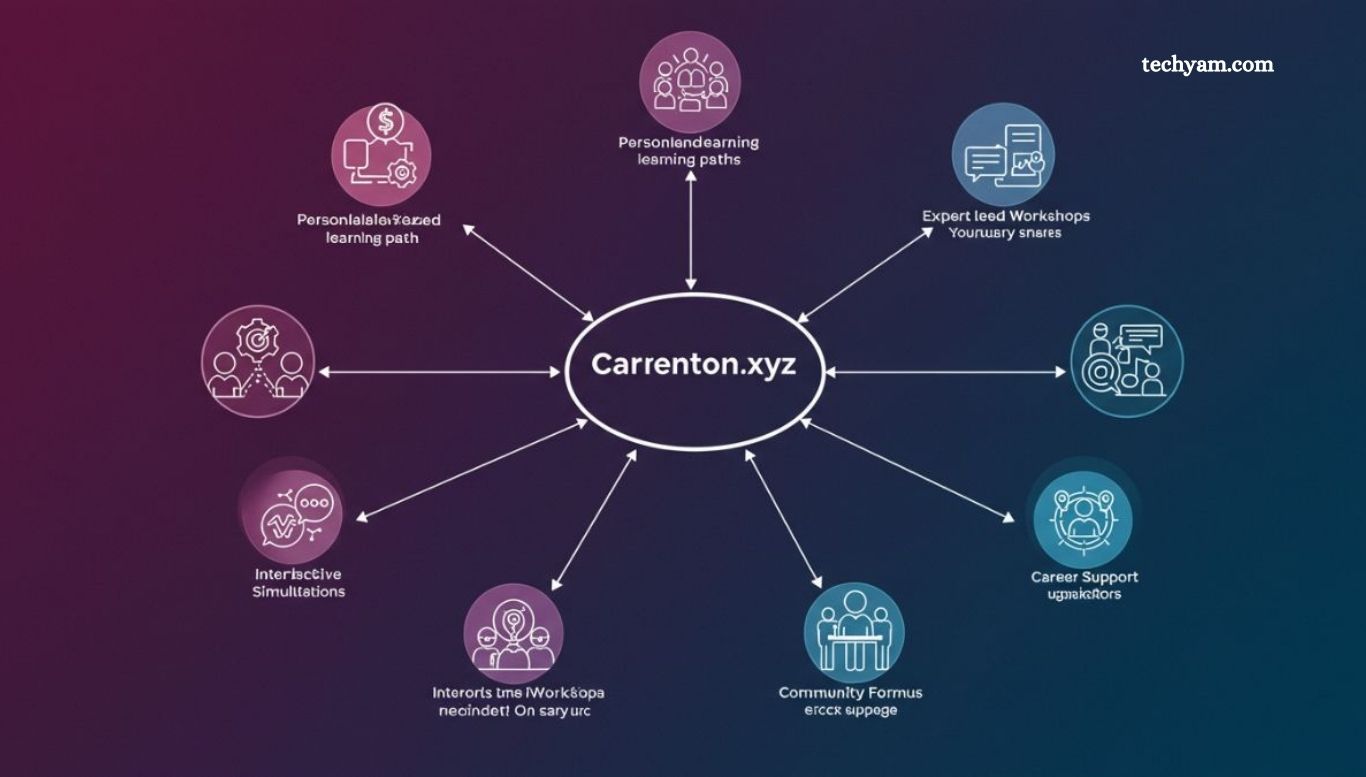Maintaining self-control and staying calm in a world full of challenges is invaluable. The quote, “Self-control is strength. Calmness is mastery.” by Tymoff, captures this wisdom perfectly. It emphasizes the power of emotional regulation and the art of remaining composed under pressure—both essential for emotional intelligence, personal growth, and navigating life’s complexities.
This article explores practical ways to develop self-control and calmness, highlighting their role in achieving success.
What is Self-Control?
Self-control is the ability to regulate emotions, thoughts, and actions effectively. It involves resisting temptations and making thoughtful decisions instead of acting impulsively. This inner drive helps you stay focused on goals despite challenges. Developing self-control requires consistent practice, but over time, it enhances stress management, supports healthy habits, and drives long-term success.
Read More: Marla Heyman: An In-Depth Look
The Importance of Self-Control
Self-control is key to managing stress, achieving goals, and making wise decisions by resisting temptations. Its benefits include:
- Emotional Stability
It helps manage frustration and anger, reducing the impact of negative emotions. - Improved Relationships
Self-control enhances your ability to interact positively, fostering more fulfilling connections with others. - Goal Achievement and Financial Responsibility
It allows you to stay focused on your objectives and avoid distractions while also promoting responsible financial choices and curbing impulsive spending. - Stress Management and Better Decisions
Strong self-control helps you stay calm under pressure, leading to more rational and thoughtful decisions.
Cultivate Self-Discipline: Proving Self-control is Strength. Calmness is Mastery. You – Tymoff
Self-discipline enables individuals to navigate challenging situations and make choices that align with their goals. While improving self-control can be difficult, it’s achievable with the right strategies.
Here are some tips to enhance self-control:
Stay Focused
Define your priorities and set clear goals. Having a specific direction helps eliminate distractions that hinder your progress.
Avoid Distractions
Increase productivity by engaging in meaningful activities that align with your goals while avoiding time-wasters.
Practice Meditation
Meditation is an effective way to manage thoughts and calm emotions. It reduces mental clutter, helping you stay focused.
Steer Clear of Temptations
Avoid actions or environments that weaken your self-control. Surround yourself with positivity to support your goals.
Strengthen Your Mind
Strong mental health is key to self-control. It promotes logical thinking and helps you make decisions based on reason.
Change Unhealthy Habits
Replace self-control challenges with positive activities. Adopting a healthy routine that supports your goals is crucial for long-term success.
For example, if you’re trying to quit smoking, consider switching to nicotine vape juice, which allows for better control over nicotine intake. However, it’s essential to consult with a healthcare professional to ensure a safe and effective transition.
Understanding Calmness
Calmness is the ability to maintain inner peace and tranquility despite external pressures. It enables a focused mind to handle challenges and make productive decisions. Achieving calmness requires self-awareness, relaxation, and mindfulness. It involves staying present and letting go of negativity to foster clarity and balance.
Significance of Calmness
Calmness reduces stress and anxiety, paving the way for clear thinking and informed decision-making. It also fosters patience and thoughtfulness in challenging situations.
Here are some key benefits of calmness:
Stress Reduction
Calmness helps manage stress, improving overall well-being.
Enhanced Decision Making
A calm mind effectively solves problems and makes well-informed decisions.
Improved Communication
It aids in controlling anger and frustration, leading to more transparent and more assertive communication.
Better Relationships
Calmness promotes understanding and mutual respect, strengthening relationships.
Increased Focus
It helps you concentrate better and stay aligned with your goals.
How to Master Calmness?
Practicing mindfulness and deep breathing helps center your thoughts, while regular exercise and time in nature promote inner calm. Developing these habits requires consistency and dedication, reinforcing the wisdom in the saying: “Self-control is strength. Calmness is mastery.” – Tymoff.
Here are some practical ways to enhance peacefulness:
Stay Calm with Meditation
Daily meditation keeps the mind both active and relaxed.
Get Enough Sleep
A proper sleep schedule supports emotional balance and overall health.
Eat a Healthy Diet
Nutritious foods boost energy and calmness, while unhealthy meals increase stress.
Exercise Regularly
Physical activity improves mood and reduces tension, fostering a sense of peace.
Connect with Nature
Spending time outdoors enhances tranquility and overall well-being.
Set Realistic Expectations
Avoid unrealistic standards for yourself and others—focus on what’s within your control.
Above all, treat others with kindness and empathy. A positive attitude fosters an environment of understanding and lasting peace.
The Connection Between Self-Control and Calmness
Self-control and calmness are deeply interconnected, creating a powerful synergy that enhances personal growth and fulfillment. Tymoff’s famous phrase highlights the balance between these qualities. Mastering both fosters resilience, allowing you to tackle challenges with confidence and grace.
Frequently Asked Questions
What is the meaning of “Self-control is strength? Calmness is mastery”?
This phrase emphasizes that true strength lies in self-discipline, while mastery comes from maintaining inner peace despite external challenges.
Why is self-controlled to mastery?
Calmness fosters clarity, patience, and resilience, helping individuals navigate stressful situations with confidence and composure.
How are self-control and calmness connected?
Both qualities work together—self-control helps manage impulses, while calmness ensures rational decision-making under pressure, leading to overall emotional stability.
What are the benefits of practicing self-control and calmness?
They improve decision-making, reduce stress, enhance relationships, increase focus, and contribute to overall well-being.
How can I develop self-control?
Practicing mindfulness, setting clear goals, avoiding distractions, and replacing bad habits with positive ones can help strengthen self-control.
How can I cultivate calmness in daily life?
Meditation, deep breathing, spending time in nature, and maintaining a balanced lifestyle can enhance inner peace and emotional stability.
Why is this quote by Tymoff so popular?
It resonates with people seeking personal growth and emotional balance, offering a simple yet profound insight into achieving mental and emotional strength.
Conclusion
The quote, “Self-control is strength. Calmness is mastery,” by Tymoff, highlights the profound impact of discipline and inner peace on personal growth. Self-control empowers individuals to resist distractions and make mindful choices, while calmness fosters resilience and clarity.
Together, these qualities create a balanced, confident, and focused mindset, enabling success in both personal and professional life. By practicing mindfulness, setting goals, and maintaining emotional stability, anyone can harness the power of self-control and calmness to navigate life’s challenges with grace and confidence.







